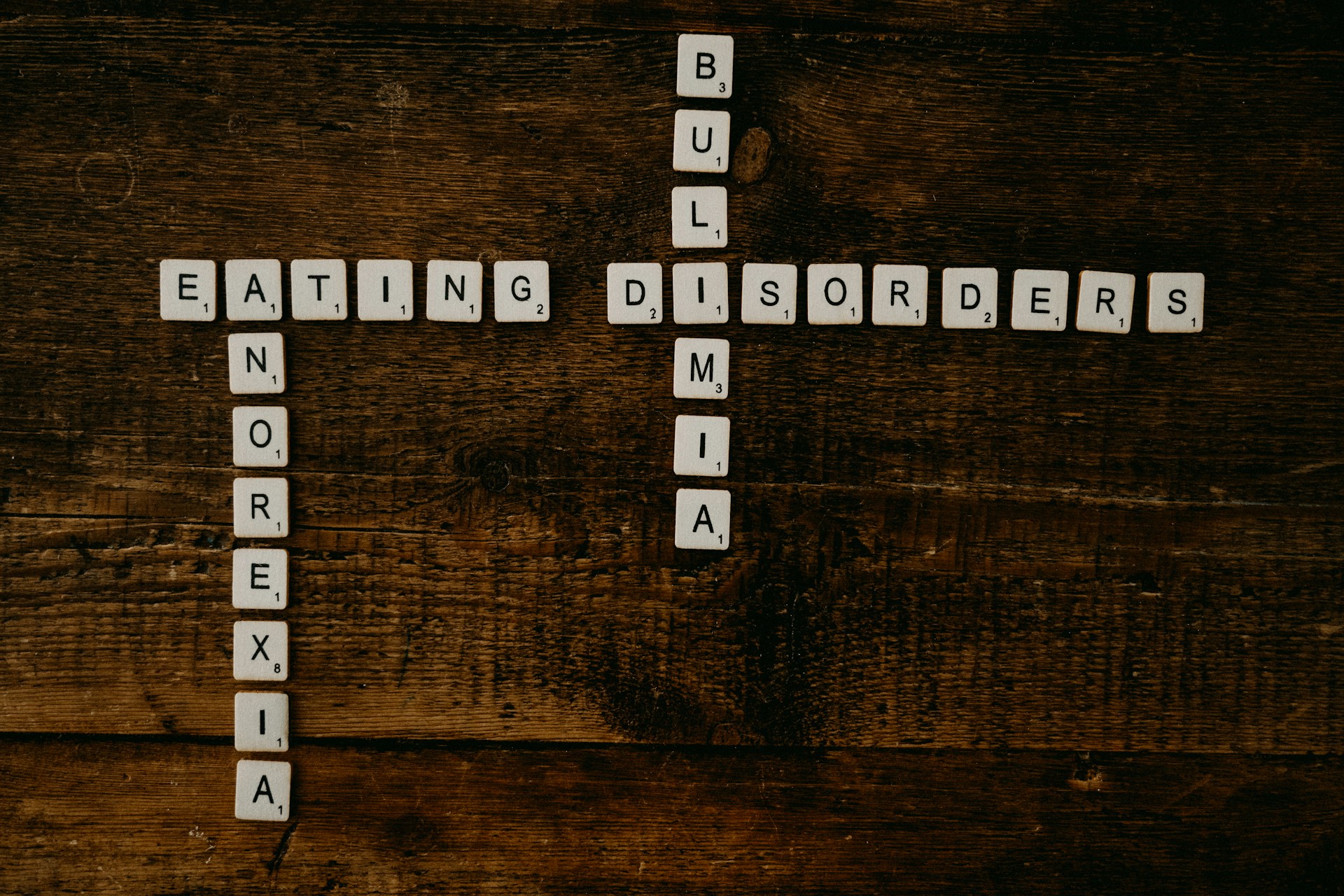What are Eating Disorders
Eating disorders are serious mental health conditions characterised by unhealthy relationships with food, eating habits, and body image. These disorders often involve extreme behaviours, thoughts, and emotions surrounding food and weight, which can negatively impact physical and emotional well-being. Eating disorders are not solely about food; they are complex and often tied to psychological factors like low self-esteem, stress, or trauma.
Common Types of Eating Disorders
1. Anorexia Nervosa: Characterised by an intense fear of gaining weight, distorted body image, and extreme food restriction, often leading to severe weight loss and health complications.
2. Bulimia Nervosa: Involves cycles of binge eating followed by compensatory behaviours such as purging, fasting, or excessive exercise to prevent weight gain.
3. Binge Eating Disorder: Characterised by recurrent episodes of eating large amounts of food, often quickly and to the point of discomfort, accompanied by feelings of shame or lack of control.
4. Other Specified Feeding or Eating Disorders (OSFED): Eating disorders that don’t fully match the criteria for other types but still cause significant distress and impairment.


Bulimia
Bulimia


Anorexia
Anorexia
Anorexia nervosa is an eating disorder characterised by extreme food restriction, intense fear of weight gain, and a distorted body image, often leading to severe weight loss and health risks. Treatment involves a combination of medical care, nutritional guidance, and psychotherapy that according to ‘evidence based practices’ involves psychotherapies such as Cognitive Behavioral Therapy for Eating Disorders (CBT-E), Specialist Supportive Clinical Management (SSCM), Maudsley Adult treatment for Anorexia Nervosa (MANTRA), Cognitive Remediation Therapy (CRT), Compassion Focused Therapy (CFT) and Family-Based Therapy (FBT) for adolescents. Dr Melville is qualified and experienced in all of these treatments but also draws on ‘practice based evidence’ and clinical wisdom to conduct individualised treatment plans.
Signs and Symptoms
- Obsession with food, dieting, or exercise.
- Extreme fear of weight gain or preoccupation with body image.
- Changes in eating habits, such as skipping meals, bingeing, or purging.
- Physical symptoms like rapid weight changes, fatigue, or digestive issues.
- Emotional distress, anxiety, or depression related to eating or appearance.
Consultations and Treatments
Eating disorders require professional treatment, often involving a combination of psychotherapy, medical care, and nutritional counseling. Early intervention is crucial to recovery, as eating disorders can have severe physical and psychological consequences if left untreated.

Our Eating Disorders Specialist
Contact Dr. Melville
